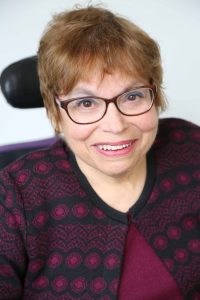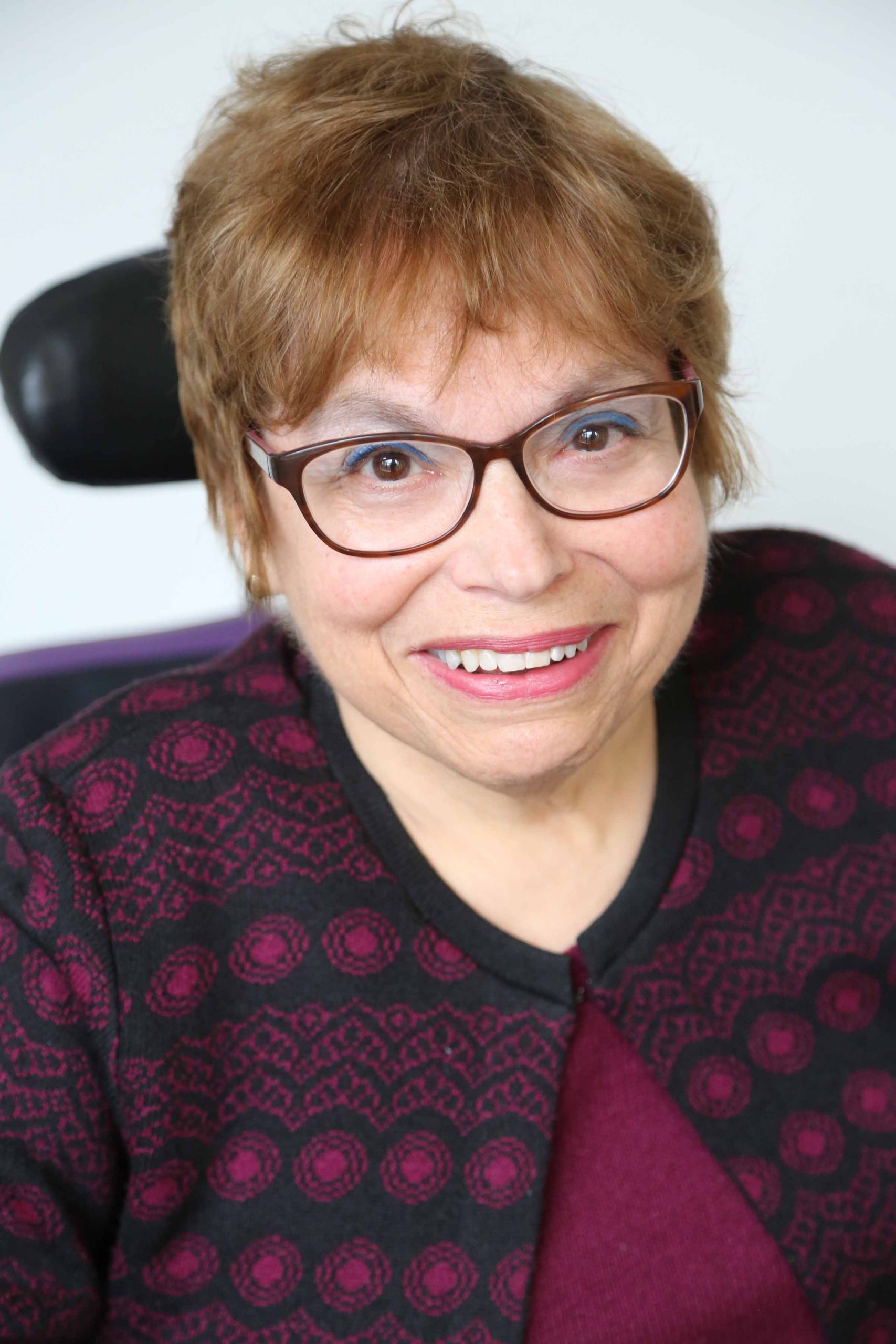Legendary disability activist Judy Heumann discusses past, present and future of disability rights

This year’s Disability Studies Series welcomed Judy Heumann, the internationally recognized Disability Rights activist who served under the Clinton and Obama administrations, for a conversation hosted by Assistant Professor of Teaching & Learning, Dr. April Coughlin.
The event was initiated by current undegraduate student and teacher candidate Kimberly Sanford ’22 (Adolescent Education). Sanford opened with a land recognition statement and information about the accessibility features of the webinar including American Sign Language interpretation and real-time transcription via CART. She also assisted in the design and production of the event poster that utilizes alternative text, making the flier screen-reader friendly and fully accessible.
Heumann began by sharing with the campus community that her fight for Disability Rights began early in her life, when she contracted polio in 1949, and grew and evolved in the decades following. Coughlin set the stage for discussion with an introduction about some of the most pressing issues in Disability Rights today.
Much of the conversation surrounded the ongoing effort for the disabled community to be recognized in Diversity, Equity & Inclusion initiatives in all learning institutions. Heumann advocated for disability activists to work alongside advocates from other marginalized groups to create inclusion efforts that benefit all.
“I believe it’s important that we’re always working with other groups that may not be disability groups,” she said. “It should be a collaborative effort, so that we look out for each other.”
Heumann also encouraged disability rights advocates to continue fighting on their own for inclusion, especially in education curricula.
“We should be demanding that disability be a part of what’s being taught, and who’s teaching it, and who’s learning it,” she said. Following the talk, Sanford provided some resources for incorporating Disability Studies into classrooms across content areas and educational levels/institutions.
The issue of appropriate language was also a prominent topic of discussion. After an attendee asked for the best way to address individuals with disabilities versus those without, Heumann explained that she prefers using the terms “disabled” and “non-disabled” to make that distinction.
Using the right language is also crucial in addressing students’ needs in the classroom. Heumann stressed the importance of listening to all voices and allowing space for individuals to express their own needs based on their lived experience. “I think it’s really looking at what it is that people need, what is being offered, and how to work with the individual to help them get what they need to be successful,” said Heumann. “We have to be more specific and not generalize.”
About the Disability Studies Series
This program was presented and funded by a diverse collective of SUNY New Paltz campus partners and friends of the College, including the Disability Resource Center, Division of Student Affairs, Faculty Development Center, Campus Auxiliary Services, and the Kressner Family Autism Spectrum Program Fund.
Additional supporters included the Deaf Studies program, School of Education, Department of Teaching & Learning, Department of Educational Studies & Leadership, Diversity, Equity & Inclusion Faculty Fellows, Diversity, Equity & Inclusion Council, College of Liberal Arts & Sciences, Sojourner Truth Library, Office of Veteran & Military Services, RHSA and SA, Center for Student Success, and the Departments of Communication Disorders, English, Political Science, Sociology, Theatre Arts, and Women’s, Gender & Sexuality Studies.

